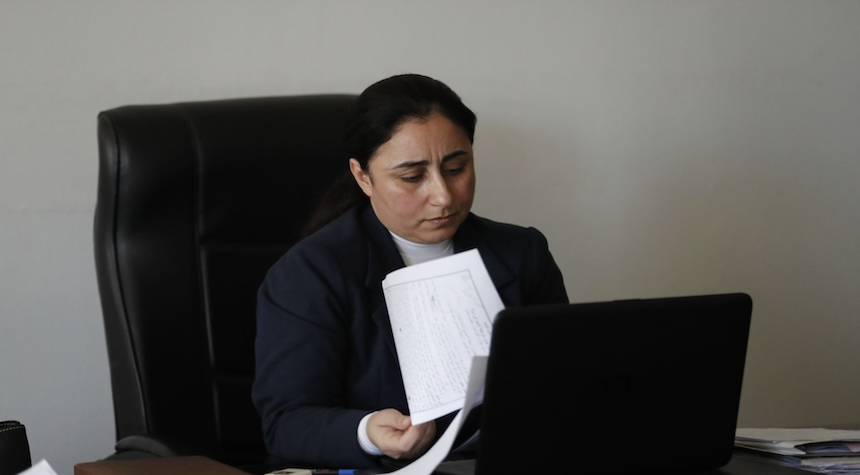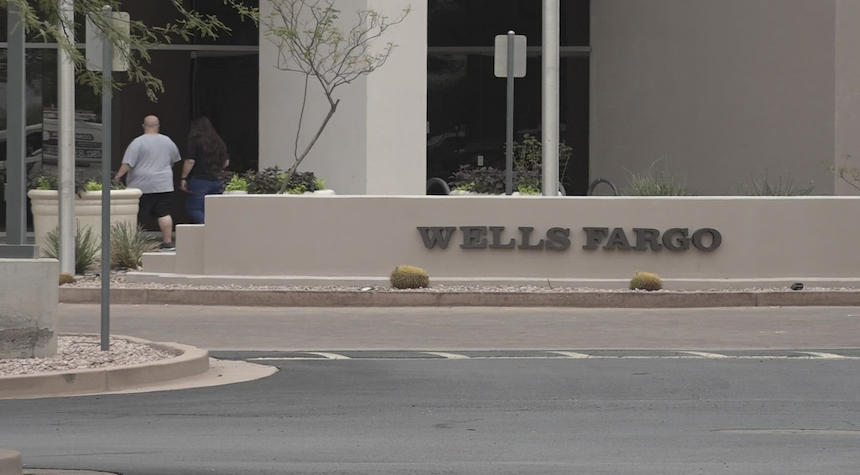Denise Prudhomme, 60, scanned into the Wells Fargo branch in Tempe, Arizona at 7:00 am on Friday, August 16. Prudhomme did not scan out. The next few days saw employees complaining of an odor. They attributed the odor to faulty plumbing. Another employee was walking in her cubicle on Tuesday, August 20. Prudhomme lay on her back, unresponsive, and slumped at her desk. The employee called building security who then dialed 911. Officers confirmed Prudhomme’s death when they arrived.
In Tempe, an investigation is underway after a Wells Fargo worker died on the job. Police have released a new timeline that suggests the body had been there for at least four days before it was discovered.
“It is heartbreaking, and I am thinking ‘What if I were just sitting there’?” “No one would check on me?”
A body was discovered inside the Wells Fargo Corporate Office in Tempe. Unidentified associates who spoke to 12News said that the situation was troubling.
The worker said, “It makes me sick to hear that she has been sitting there at her desk for so long.” “And nobody did anything.” “That’s the way she spent her final moments.”
This woman clocked in at 7am, went to her cubicle and died. Her body sat at the desk for 4 days until someone found her. She was on an open floor of cubicles and coworkers just assumed the smell was a plumbing problem. https://t.co/1g44m2Rvj1
— Kenny Webster (@KennethRWebster) August 29, 2024
How did this happen? Local news interviewed anonymous employees, who said that it was a large building and not all of the staff worked in the office every day. Some employees are upset that Prudhomme was found dead at her desk and blame their employer. Is it the fault of Wells Fargo that no one checked in on Prudhomme, or said goodnight or good day to her? Although I haven’t worked in corporate America in 16 years, it seems that workplace relations have devolved dramatically if someone is allowed to rot on their desk for 4 days without anyone noticing.
The tragic story of this tragedy is not about our unhealthy relationship with work or the workplace. It’s more about how we have disconnected from community and face-to-face interactions. I’m just as guilty of some of it as anyone else. Facebook, text messages, and other social media are used to keep in touch with family members and friends. We don’t know who runs our country and some of us aren’t interested. We are an increasingly disconnected nation.
We co-workers at one of the jobs I held for seven years developed a small community. We shared lunches, we had each others’ home numbers, and, eventually, our cell phone numbers. We also knew when someone was hospitalized or seriously ill. Jenifer was a co-worker who battled breast cancer and we were there for her during chemo. Deborah, another co-worker who suffered from a stroke and we walked with her through this, was also very important to me. These relationships were important to me as a single woman living alone in Los Angeles. They were all at my wedding even though we stopped working together a long time before. So I was fortunate to have this connection and we are still friends today.
Denise Prudhomme’s story shows that this is no longer a reality and it is a detriment to society.
While remote work can be a blessing in some cases and is necessary in others, it has also affected our ability to communicate face-to-face. We can also blame the COVID policies that were unscientific and insane, indoctrinating us to believe that our fellow humans were disease vectors who wanted to kill. One of the horrors that occurred during this time was making people die alone. The disconnection with our fellow man is what leads to this cavalier calculation. Too many people around us, such as stupid social media influencers encourage it. In our Brave New World, the most terrifying aspect is “AI friendships”, where people create a person they like via technology with whom to interact and converse. A fully customizable AI-being that mimics the best features of a friend without the awkwardness and hiccups of an actual human relationship.
God bless us.

Denise Prudhomme’s family would be in deep sorrow if she had one. Imagine the pain they will feel knowing their loved ones died in an unhonorable manner. In 2017, my sister died similarly. Joan, who lived with her cat in her apartment after undergoing knee surgery, was recovering at home. She refused to go to our sister’s house because she preferred to sleep in her bed with her cat. She also preferred to communicate with family and friends via social media. When Joan stopped answering and no one heard from her, her family called her number, but nobody was able to get a response. My nephew called the cops and they came to check on my health. Like Denise Prudhomme’s case, authorities discovered her in not-so-good condition. We didn’t want her to be disturbed, so we assumed she would respond (because that’s what she did). Joan was dead for a few days before she could be found. Was it our fault? Maybe. Even though I haven’t seen her in years, it still makes me sad that she died alone without anyone to help her.
This has made me more aware and determined to avoid living a life of isolation and to stop relying on technology as my only form of communication. This gets more difficult as I age, and it’s a whole new challenge since we moved to a state where there are no relatives or friends who have been around for a long time.
- I have permitted friends to call me out of the blue.
- I have permitted certain people to come by without announcement.
- I regularly attend church and have consistent workout times at my boxing gym. If I am going to be gone for some time, I let family, church friends, and gym friends know.
- There’s a proverb that says, “It’s better to go to a neighbor than to a brother who lives far away.” My immediate family is too far away to assist in an emergency, so I touch base with my neighbor across the street and next door; we watch out for each other.
- A nearby friend, along with my husband, has medical authority for my care.
I have also written about my health journey and challenges, some of which are on this website. Three of my sisters have died prematurely under various circumstances. Joan’s twin June fought T-cell lymphoma for some time. The cancer and failed treatments eventually wore her out. A co-worker said at one of the memorials she attended, “I never knew she was sick.” This was the advice of my now-deceased mother, who insisted that we keep our private lives to ourselves.
You may need to call on the help of your community if you are ill. If I suddenly fall unconscious or have an attack at work, I would like someone to be there who is familiar with my X, Y, and Z ailments and could offer assistance. It is important to establish trust and allow people into your life.
The problem is that you cannot get people out of their cubicles or away from their screens. When people are unable to leave their cubicles and screens, it is difficult to build connections. It could be the difference between your life and an untimely demise. And if you die, it will not be on your own.


